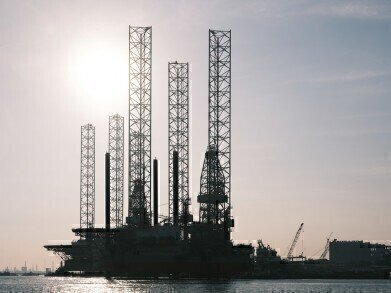Fuel for thought
Is Oil Transport by Water Safe?
Oct 26 2015
Crude oil is a global commodity, with producers transporting it across oceans, deserts, cities and beyond. Pipelines are by far the most popular method of getting oil from A to B, however they’re not the only option. Water is also another widely used method of transport, with tankers used to move the commodity from port to port.
To put things into perspective, 70% of US crude oil and petroleum products are transported via pipelines. Water is the second most popular method, with 23% of oil shipments taking place on tankers and barges.
So is oil transport by water safe?
The risk of spills
Unfortunately, when tankers succumb to leaks and spills the environmental consequences can be devastating. When oil is spewed into the ocean the impact on aquatic ecosystems is immediate. Oceans, rivers and shorelines are all at risk, with marine birds, mammals, fish and other organisms all suffering from the slicks.
Historically, five out of the ten largest oil spills in U.S. history have been as a result of boats. For example, the latest high profile oil spills to make global headlines were Exxon Valdez and a collision in the Houston Ship Channel.
Health and safety at sea
When it comes to human safety, oil transport by water is relatively safe. While in the past tankers passing through areas such as the Gulf of Oman have been plagued with the risk of piracy attacks, a stabilising government and on-board security measures mean the issue is no longer imminent. Today’s oil tankers also feature state of the art technology and medical facilities that see crew live very comfortably on-board.
Managing the risks
Shipping companies employ ultra-sophisticated technology to minimise the risk of spills, accidents and injury when transporting oil by water. Governments are continually looking at ways to up safety credentials, with Washington state setting a great example with its recent Marine and Rail Oil Transportation Study.
In a worst case scenario companies have contingency plans in place designed to reign in the effects of a spill. This includes coordinating with local responders and clean up teams to prepare for emergencies related to crude oil spills.
An essential part of the spills management process is ensuring that equipment is in tip top condition. ‘Mitigating Oil & Gas Casing Failures’ examines the steps a company can take to mitigate this risk of defective casing, as well as maximise compensation pay-outs if the casing fails. These include procedures for purchasing, record keeping and the regular inspection of casing.
Digital Edition
PIN 25.6 Buyers' Guide
January 2025
Buyers' Guide Directory - Product Listings by Category - Suppliers Listings (A-Z) Articles Analytical Instrumentation - ASTM D7042: The Quantum Leap in Viscosity Testing Technology -...
View all digital editions
Events
Jan 20 2025 San Diego, CA, USA
Jan 22 2025 Tokyo, Japan
Jan 25 2025 San Diego, CA, USA
SPE Hydraulic Fracturing Technology Conference and Exhibition
Feb 04 2025 The Woodlands, TX, USA
Feb 05 2025 Guangzhou, China



















